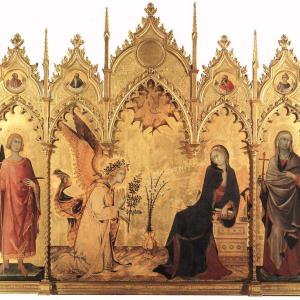Michael D. Bobo has written as Christian Literature Examiner for Examiner.com and has contributed to Burnside Writers Collective, Emergent Village Voice and theOOZE.com. He is delighted to serve as curator of Daily Burnsider and Poetry Editor for Burnside Writers.
Posts By This Author
Waiting for Your 2013
A new year evokes so many emotions in us. For some a wonder of potential opportunities. Others, the hope of change. Still others, the fear of uncertainty. In each case there lies a moment of suspense. A pause. And yet our resolutions are spoken, written and relayed far before the time has been taken to contemplate what we feel and how we feel.
This year my challenge is to start with the place of inaction and pause to consider what we in fact feel. To each of us we have to slow down after the Christmas season high of purchasing, giving, praying, lighting candles, waiting in Advent, and hoping for the Christ Child to know what kind of year we will encounter.
Resolve to be irresolute until the time of knowing appears.
Resolve to sit silent and listen.
Resolve to move slower until weary legs are refreshed.
Resolve to know loved ones as they are right now.
Resolve to build, to grow, to transform those parts that 2012 has damaged or left broken.
Advent and Expectations
Advent candles lit round the world declare our longing for the coming of Christ. We wait. And, in our waiting we hope, we pray, we yearn. Advent is a season where our energies and passions for all things to be made right are kindled. Christ, the precious Baby in the manger, is coming for us all to celebrate. Consider Him.
Despite the hunger, the fatherless, the ailing. Despite the wars and senseless violence. Despite all of the reasons to say there is no redeemer.
We wait for the Christ child.
Our faith is rooted in such anticipation. Mockers have innumerable examples to declare the reasons why God is dead. Centuries of proof. Holocausts, molestation, shame. The Church waits despite its own pollution and contribution to the lack of justice.
Yet these things merely point to the coming of the Child. If the world were made right by our collective longings for occupation, for the 99 percent, for cosmic good, we’d see equitable dispersion of wealth, of food, of housing. We’d live the Marxist dream of community. We would all be haves.
God the Father and Embryo
Advent suggests so many mysteries of God's patience. One rarely commented case is God as Father and embryo. It is extra Biblical so imagination can only begin to tell the bizarre tale. Gabriel's annunciation and appearance to Joseph begins the period of waiting and soul searching, but a remarkable gap exists in the Advent story. Luke 1:56 makes this cursory remark as though it would suffice:
Mary stayed with Elizabeth for about three months and then returned home.
Presumably the second trimester of Mary's pregnancy is treated with a passing reference. If we simply take the divine conception of Jesus at face value, there was a moment in human history where God existed as Father in the heavens and embryo in Mary's uterus. Paradox of paradoxes. The Creator in utero.
The Annunciation – A Divinely Human Moment
In the sixth month of Elizabeth’s pregnancy, God sent the angel Gabriel to Nazareth, a town in Galilee, to a virgin pledged to be married to a man named Joseph, a descendant of David. The virgin’s name was Mary.
The beautiful anonymity and soft innocence of a young girl in Nazareth would be stripped by an angelic visitation. Who could ever envision the global veneration soon to commence? This Holy Virgin of Martini's masterpiece cannot be Mary's vision. The gilded, enthroned Mother of God, Blessed Virgin, Theotokos, Panagia. Millenia of adoration blurs the humanity of such a terrifying moment in the life of a child.
The angel went to her and said, “Greetings, you who are highly favored! The Lord is with you.”
Gabriel's praise for her resounds the Earth this Advent Season. Martini paints the words spouting from Gabriel's mouth, invading Mary's space. Her shoulder shrug speaks to Luke's revelations of her humanity. The Gospel record exposes her vulnerability and reluctance to embrace such a startling event.



